Protecting Baltic Sea ecosystems, biodiversity and natural resources is more important than ever. At the same time, there is a great need for new knowledge about both the sea and its fish. To create conditions for new research on Baltic Sea fish, support restocking of endangered fish species, development of aquaculture and knowledge building, BalticWaters is establishing a new fish research laboratory – the first of its kind in the Baltic Sea region.
The laboratory will be a place to explore fish at all life stages – from egg to adult fish. In addition to research, the work at the laboratory will also contribute to the development of new techniques and methods for sustainable land-based aquaculture, as well as restocking to help fish in the sea recover. The laboratory is open to researchers and organizations from around the world who want to work with cold-water fish such as cod, herring and turbot in the Baltic Sea.
The fish research laboratory is being built in Studsvik Tech Park outside Nyköping, Sweden, and is expected to be completed in 2025.
Activities and objectives of the Fish Research Laboratory
The main purpose of the laboratory is to contribute knowledge for a living ocean. It is a place that enables new insight about the cold-water fish species in the Baltic Sea, which will ultimately promote the biodiversity of the sea. The operations will also:
Develop new knowledge on fish breeding for restocking:
Develop knowledge and methods for land-based hatching and rearing of cold-water fish,
such as cod, herring and turbot, to strengthen local fish populations.- Create conditions for new research:
Studies aimed at better understanding the situation and development of fish populations
and how they are affected by factors such as climate change, eutrophication,
environmental toxins and fishing. - Disseminate knowledge:
Develop, compile and make knowledge available on:
– how breeding and cultivation of wild fish can contribute to strengthening local fish populations in the Baltic Sea
– the development of circular and climate-neutral aquaculture on brackish water species. - Contribute to sustainable aquaculture:
Support, on a commercial basis, the breeding and restocking of fish and support aquaculture
with skills.
The laboratory will also house the Foundation’s large-scale project ReCod – Release of Small Cod in the Baltic Sea.

Illustration: Louisa Juvall Molin
Implementation of the project
Construction will start in early 2024 and the laboratory is expected to be ready for operation in autum 2025. In total, BalticWaters is investing SEK 150 million. Axfood has become a long-term partner by contributing to the operation of the laboratory, advice, contacts and knowledge.
